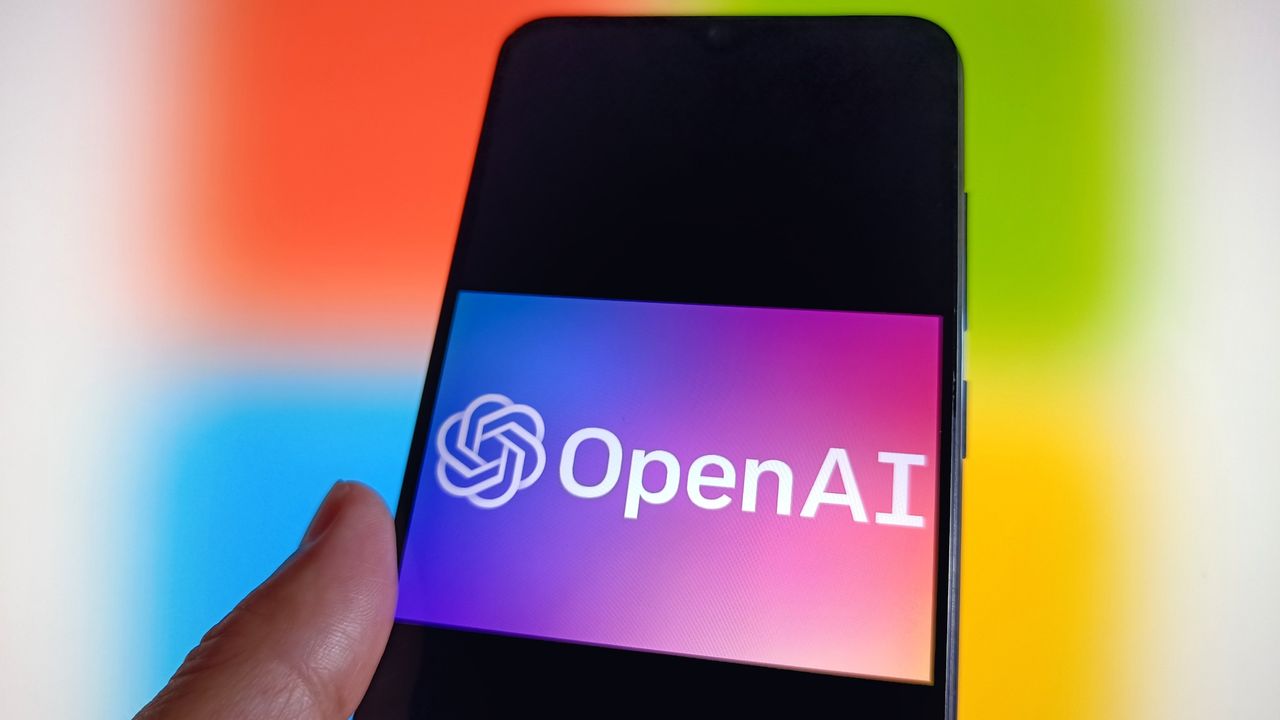
Microsoft and OpenAI agreed in September to continue their multi-billion dollar partnership, though specific details haven’t been released. This lack of clarity has sparked discussion, especially as OpenAI plans to become a for-profit company by the end of the year to maintain its independence and avoid being acquired by another firm.
Today, the companies announced a new, finalized agreement as their multi-billion dollar partnership moves forward. This agreement clarifies Microsoft’s position and perspective on OpenAI becoming a for-profit company.
Microsoft announced its support for OpenAI’s plan to become a public benefit corporation and restructure its ownership. The company also disclosed that it has a $135 billion stake in the new structure, representing a 27% ownership share when considering all stakeholders, including employees, investors, and the OpenAI Foundation.
Before OpenAI received its latest funding, increasing its value to $500 billion, Microsoft owned a 32.5% share of the company, considering all convertible investments.
Earlier reports indicated OpenAI might change parts of its deal with Microsoft, specifically regarding exclusive rights to its technology and the use of Microsoft’s Azure services. However, the new agreement keeps those key aspects in place until OpenAI develops artificial general intelligence (AGI).
What’s particularly noteworthy is that an unbiased group of experts will set and confirm the standard for measuring true AI. This comes after concerns arose that OpenAI might have been planning to rush a declaration of achieving Artificial General Intelligence (AGI) by releasing a coding AI that could outperform even highly skilled human programmers. Some believe this move would allow OpenAI to become independent from Microsoft.
I’m really excited about this deal because it’s structured to let both companies thrive and push the boundaries of what’s possible with AI. It’s not just about working *together*; it’s about giving each of us the freedom to innovate and grow on our own too. Here are some of the other important parts of how we’re partnering:
- Microsoft’s IP rights for both models and products are extended through 2032 and now include models post-AGI, with appropriate safety guardrails.
- Microsoft’s IP rights to research, defined as the confidential methods used in the development of models and systems, will remain until either the expert panel verifies AGI or through 2030, whichever is first. Research IP includes, for example, models intended for internal deployment or research only. Beyond that research IP does not include model architecture, model weights, inference code, finetuning code, and any IP related to data center hardware and software; and Microsoft retains these non-Research IP rights.
- Microsoft’s IP rights now exclude OpenAI’s consumer hardware.
- OpenAI can now jointly develop some products with third parties. API products developed with third parties will be exclusive to Azure. Non-API products may be served on any cloud provider.
- Microsoft can now independently pursue AGI alone or in partnership with third parties.
- If Microsoft uses OpenAI’s IP to develop AGI, prior to AGI being declared, the models will be subject to compute thresholds; those thresholds are significantly larger than the size of systems used to train leading models today.
- The revenue share agreement remains until the expert panel verifies AGI, though payments will be made over a longer period of time.
- OpenAI has contracted to purchase an incremental $250B of Azure services, and Microsoft will no longer have a right of first refusal to be OpenAI’s compute provider.
- OpenAI can now provide API access to US government national security customers, regardless of the cloud provider.
- OpenAI is now able to release open weight models that meet requisite capability criteria.
Recently, the collaboration between Microsoft and OpenAI has faced a lot of attention. After OpenAI announced its ambitious $500 billion ‘Stargate’ project – aimed at building data centers nationwide – Salesforce CEO Marc Benioff suggested Microsoft might stop relying on OpenAI’s technology.
Reports indicate Microsoft backed out of two large data center agreements, possibly to avoid having to offer more training resources for ChatGPT. However, OpenAI’s CEO, Sam Altman, stated that they no longer have issues with computing power.
It will be fascinating to watch how Microsoft and OpenAI’s new partnership develops, particularly now that Microsoft has the potential to reach the ambitious goal of artificial general intelligence on its own.
Read More
- Best Controller Settings for ARC Raiders
- The Best Members of the Flash Family
- Every Targaryen Death in Game of Thrones, House of the Dragon & AKOTSK, Ranked
- Where Winds Meet: How To Defeat Shadow Puppeteer (Boss Guide)
- Battlefield 6 Season 2 Update Is Live, Here Are the Full Patch Notes
- The Pitt Season 2, Episode 7 Recap: Abbot’s Return To PTMC Shakes Things Up
- Auto 9 Upgrade Guide RoboCop Unfinished Business Chips & Boards Guide
- Dan Da Dan Chapter 226 Release Date & Where to Read
- Duffer Brothers Discuss ‘Stranger Things’ Season 1 Vecna Theory
- TikToker Nara Smith Reveals Husband Lucky Blue Doesn’t Let Her Drive
2025-10-28 18:01